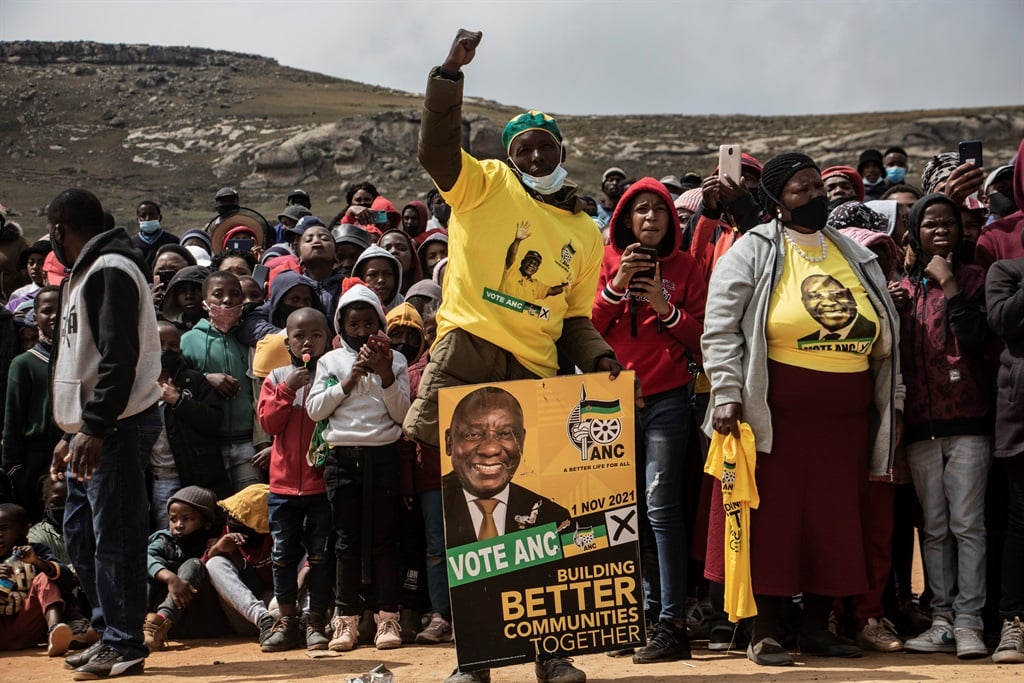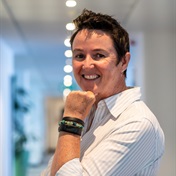
Conflict is inevitable in politics, and it should not be avoided or sugar-coated. The conflicts that arise from the competition for resources and priorities should be seen by the wise politician as energies to be guided and used for the benefit of the public good, writes Andre Vlok.
Election season is upon us again, and while we say so nearly every time, this one does seem really important, as if we are starting to awaken to some of the realities around us with more of a purpose, with an improved understanding of what needs to be done to improve our lives. But let's not talk about politics; let's talk about politicians and how they should be approaching the inevitable conflict arising from elections as important as the one we are facing.
Is there an intelligent approach to these conflicts, one that increases a politician and party's chances of winning or doing well in elections such as these? The simple answer is "yes".
Conflict resolution research, case studies, and proven best practices make a treasure chest of tools available to the parties to get measurable results delivered. Asian and European politics have been full of the results of these techniques applied in the political trenches for years now, and yet South African politicians lag decades behind in their approach and use of this knowledge. Let's then compare the actual reality of current South African politics with what it can be.
As voters, as "consumers" of this "product", as the people who have to live with the results of these elections and the political conduct that make up this landscape, we have every right to enquire as to what is available and compare that with what we are seeing on our streets during elections. Are our politicians handling election conflict well or not, what are the consequences of that assessment and do we play a role in that process?
Conflict management principles
It is a truism of international politics that it is a challenging environment, that the stakes are high, and that conventional polite behaviour may not be the best strategy to win votes. Let us, for the moment, grant that as a point of departure. What conflict management principles should a politician then be conscious of in the running of a political campaign?
We will look at a few examples illustrating this question only, as it is a vast and complex field, but hopefully in sufficient detail so as to allow you to come to your own conclusion as to the conduct of your favourite politician and party.
Firstly, we find politicians being uncomfortable or unskilled with conflict situations. Conflict is inevitable in politics, and it should not be avoided or sugar-coated. The conflicts that arise from the competition for resources and priorities should be seen by the wise politician as energies to be guided and used for the benefit of the public good. There is no need for the conflict competent political leader to step back from the fire. In fact, their principles and goals should be lived out confidently and with an understanding that conflict is inevitable. Some of the necessary conflicts that lie ahead in our society will need precisely that resolve, that understanding that this is necessary to get through.
READ | Andre Vlok: In our conflicts, we dehumanise and remove dignity
It is here that a lot of formal and informal conflict resolution efforts become derailed or becalmed. Mainly due to a lack of understanding as to how conflict works, its causes and triggers, the skills and techniques to be applied, our politicians often seem stuck between the options of either being unnecessarily aggressive or ineffectively quiet and passive. This ends up with further polarisation of our society, a failure to properly debate crucial topics, and, as we shall see, less than optimal results for the parties involved.
This abdication of the responsibility of effectively managing conflict in our political life also opens options for those who understand conflict and intend to use it to further divide us as a nation. Far from avoiding conflict, politicians should learn to use our multiple conflicts as the sparks to light the fires of understanding, renewal and progress that we so urgently need. We do not need less conflict; we need better conflict.
A second strategic error our politicians make in their campaigns is to completely misunderstand the conflict tools necessary to change those minds and hearts.
Impact of wrong tools
No distinction is drawn between factual debates and our value-based conflicts, those that are rooted in our very identities, our sense of who we are. As there are two distinctly separate strategies to be followed in these respective conflicts, if you use the wrong tools, you will get the wrong results, and as research shows, if you get value debates wrong, you make things worse. This is the simple reason why we have politicians bemoaning, election after election, why the electorate keeps on voting for the one-party even though the "facts" are so clear for all to see; this is why there is an increasing disconnect between politicians and those they are intended to serve.
In addition to the generally poor service delivery record, people do not feel heard in their value conflicts, and years of empty promises stack up to disillusion, and the harder politicians try to argue just those "facts", the more harm they do to everyone.
Political campaigns, in general, of course, seek to shore up existing supporters and gain new ones. These 2021 local general elections again show a remarkable inability by our politicians to use these conflict principles to their advantage. The goal is to persuade, and in that case, factual arguments are only a part of the debate.
Only a few isolated individual politicians seem to know how to approach such debates.
In my conflict coaching work with individual politicians, there is a spontaneous acceptance of these techniques, and the ones that apply it can see the results, and yet on an organisational level, there is hardly any evidence of this being understood, much less applied. People are not sneered or ridiculed out of their worldviews or their values. They are not convinced into holding new ones by facts alone.
And this glaring strategic error often leads seamlessly into the third example - that of ignoring or undervaluing the dignity of the electorate in the conflicts we have and also that of political opponents. Modern conflict theory shows clearly how important the recognition of the dignity of the "other" is in conflict and its management.
Politics, by its nature, requires collaboration between politicians at some time and at some level. It requires persuasion; it requires responsible leadership that transcends temporary conflicts with an eye on the bigger picture – the country's best interests.
While I am aware that what we see in public is often a public show of aggression between politicians and that they often have deeper and more respectful relationships behind the scenes, this is not as prevalent as it used to be, and the manner in which they tear each other apart in public and on social media must lead to permanent animosity, at the very least. Again, the ultimate loser is the electorate.
READ | Opinion: Andre Vlok: Reconciliation in South Africa - does the impossible just take longer?
A fourth area of conflict management where our politicians can do so much better is in the area of creative collaboration as a solution to conflicts. Of course, there is collaboration in our politics, both publicly and privately, but not enough. Politicians often still pick the low road of the party before the public good, of the cheap shot, the soundbite above results-driven solutions.
Creative solutions amid conflict, of course, demand several skills – the ability to creatively approach conflict, to be able to create new and currently unseen or unavailable solutions, stepping back from your own ego as the most significant interest in the room – all modern conflict options, but hardly seen in practice in our politics.
Social media
Our fifth example is a more obvious one, the ever-present spectacle of politicians behaving badly on social media. With few exceptions, politicians appear to be highly unskilled in handling social media conflict, a modern battleground that requires its own very special skillset. What should be a wonderful tool of communication often just ends up being a platform doing the politician and their party harm, sometimes on a seemingly daily basis. Here as well, the South African voter has much to feel let down about.
So if measurably better tools to deal with conflict and its consequences exist, why are we not seeing them used by our politicians?
Some of the reasons are easily understood – a simple lack of awareness of the existence of these options, reluctance to learn a new and somewhat complex skill, organisational apathy and a sense of the old ways being the best ways, short-term thinking, a lack of leadership and vision and many others. But somewhere in there, dear reader, you and I also feature. Some of us are also the drivers of this bad behaviour and destructive approaches to the conflict that we see.
We contribute to these cyclical conflicts with our social media likes, our baying for blood in the comment sections, our rewarding of conflict incompetence with repeat terms of office. We are a small but essential part of the journey to here.
What can we do about this?
We have seen that we are the ultimate losers when our politicians are conflict incompetent, that these decisions and actions impact us directly. A few remedies that we can bring to this right away would be to discourage bad political behaviour this election, whether on the public stage or on social media. Reward constructive behaviour with your public support, call out unnecessarily partisan behaviour, insist publicly on creative solutions, become better at dealing with conflict yourself. Bring respect, dignity and collaboration back to the table, and demand it from our politicians. If we change, they will change.
And what can our politicians do to become conflict competent?
An important first step is to simply recognise that it doesn't have to be this way. You can stand out in this crowd by simply becoming conflict competent, by actually walking the values that we want to see in you.
The simple fact is that once you are truly conflict competent, you will be able to deal with the areas regarded as the political and economic solutions – unemployment, the economy, whatever arises, you will be able to properly manage it.
We want to support you, we want to respect you, help you on the hard road ahead. But we need this to change. A part of modern conflict management is also to know when a harmful relationship must be ended, and a lot of us have reached that stage. You are going to lose us because you do not understand and act on the causes and triggers of conflict. We are paying the price for that failure. As we said in the beginning – conflict is an energy. It can set us on the road to recovery or destroy us. These tools are available. You are going to need them.
- Andre Vlok is a conflict resolution specialist.
To receive Opinions Weekly, sign up for the newsletter here.
*Want to respond to the columnist? Send your letter or article to opinions@news24.com with your name and town or province. You are welcome to also send a profile picture. We encourage a diversity of voices and views in our readers' submissions and reserve the right not to publish any and all submissions received.
Disclaimer: News24 encourages freedom of speech and the expression of diverse views. The views of columnists published on News24 are therefore their own and do not necessarily represent the views of News24.




 Publications
Publications
 Partners
Partners
























